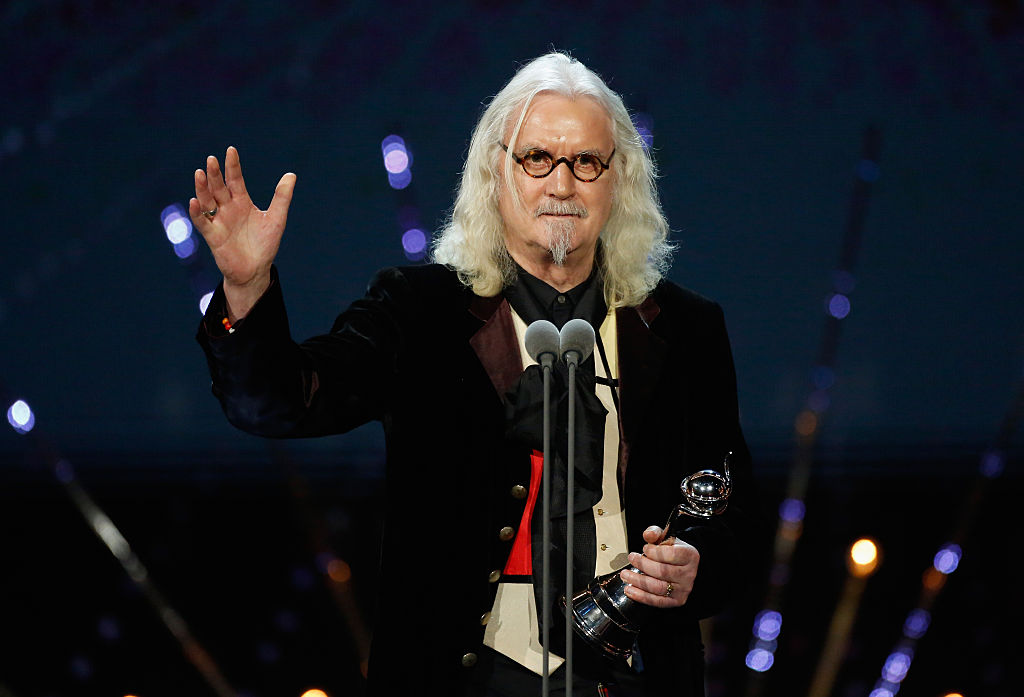I don’t prefer shopping at a specific supermarket. For some it’s a sign of social status, like the toffs who pride themselves in navigating the aisles of Waitrose, while sneering at the plebs in Lidl. However, my supermarket choice may now be influenced by the outrageous behaviour of Asda (in Dewsbury), who sacked a disabled grandad for sharing a clip of Billy Connolly ridiculing both Islam and Christianity on his personal Facebook page. Has blasphemy become a sackable offence in modern Britain?
The man in question is 54-year-old Brian Leach from Yorkshire. Leach, who’d worked for Asda for five years, told the Examiner Live:
‘I was summarily dismissed without notice following a disciplinary meeting for breaching the company’s social-media policy.’
Having been snitched on by a colleague, for alleged Islamophobia, his employers decided he had committed gross misconduct by sharing something with the ‘potential to bring the company into disrepute’. Employers do of course have a right to protect their reputations, but this decision is far from proportionate.
I’ve viewed the clip in question, it’s from an old Connolly live stage act. Connolly takes pot shots at both Christianity and Islam, sparing neither. The video in question includes the lines:
‘Religion is over, lads, it’s f****** over’, and ‘Suicide f****** bombing – now there’s a bright idea. Every time there’s a bang the world is a w***** short. F****** idiots.’
In an apology to his bosses focusing on Connolly’s ‘offensive’ references to Islam, Leach writes:
‘I have spoken to affected colleagues apologising for my post, taking their feedback onboard. I have realised people’s faiths are very important to them, and the nature of the post regarding the sensitive nature of it relating to the holy place of Islam.’
The apology was given even though none of the supposedly blasphemous video content shared was racist, nor did it stir up hatred on grounds of religion or race. It was issued after Leach admitted guilt, removed the post, and Asda colleagues from his Facebook friends’ circle.
Perhaps his bosses had a sense of humour failure, or perhaps they need to be reminded people in this country have the right to free speech even when what they say, or publish, may cause offence. Of course, this issue is indeed very topical, given the national debate around finding a workable definition of so-called ‘Islamophobia’, which is a terribly vague and expansive word, and one often weaponised by Islamists to censor criticism of religion, or the behaviour of extremist Muslims.
Fortunately, Article 10 of the Human Rights Act 1998 safeguards our right to hold opinions freely without worrying about state interference.
However, Leach’s troubling case sets a dangerous precedent for free speech. Could it mean employees who don’t like religion or have certain political views, should self-censor social media posts hereon in?
Should they be constantly mindful of what they share on their personal Facebook pages or who they retweet or follow on Instagram?
It may not be Asda’s intention, but this is likely to have a much wider chilling effect on free and open discussion on matters of significant public interest. It is likely to also add to our growing culture of censoriousness, emboldening professional grievance mongers who cry ‘phobia’ or ‘racism’ at the drop of a hat, with an aim to stifle (or shut down) debate about inconvenient truths, or perhaps scupper the career prospects of a rival at work.
I asked Asda for comment about Leach’s sacking. A spokesperson told me:
‘We would never comment on individual circumstances, however we do not tolerate any form of discrimination from colleagues or customers and take such behaviour extremely seriously.’
This utterly shameful episode has made me ponder my recent meeting at the Crown Prosecution Service, in which I obtained insights into the hate crime legal framework in England and Wales. Among the nuggets of information, it is important to share something called the Waddington amendment, which was incorporated into the Public Order Act 1986. This was lobbied for by amongst others, another high-profile comedian – the brilliant and wonderfully silly Rowan Atkinson.
Section 29J ‘protection of freedom of expression’ in the Act reads:
‘Nothing in this Part shall be read or given effect in a way which prohibits or restricts discussion, criticism or expressions of antipathy, dislike, ridicule, insult or abuse of particular religions or the beliefs or practices of their adherents, or of any other belief system or the beliefs or practices of its adherents, or proselytising or urging adherents of a different religion or belief system to cease practising their religion or belief system.’
Note to Asda: notwithstanding your social media policy, the above is within our existing legal framework. It is designed to protect hard fought freedoms in this country, which are vital for the free flow of ideas and thoughts, forming the lifeblood of democracy.






Comments